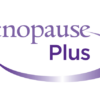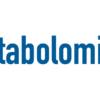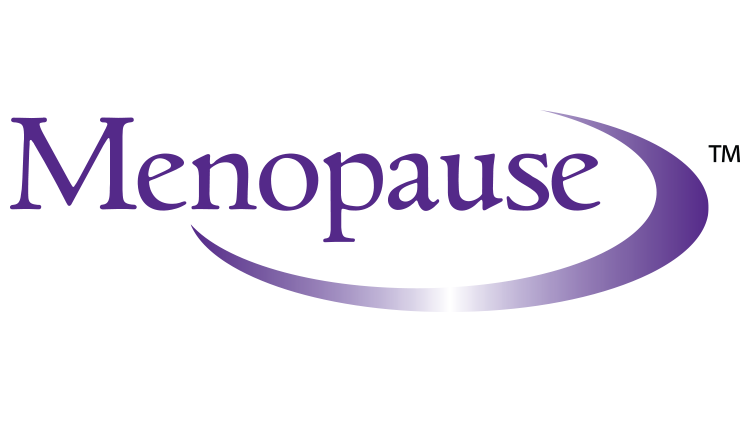Description
The Original Genova Salivary Sex-Hormone Test
Now with a Therapeutic Cohort Results Cover Page for Greater Insight
Menopause™ is a salivary hormone test for evaluating levels of sex hormones in both women and men. Three specimens — collected over 5 days — are examined for levels of estradiol, estrone, estriol, progesterone, the progesterone/estradiol ratio (P/E2), and testosterone.
To enhance clinical utility, in addition to evaluating patient results against various healthy cohort reference ranges, a therapeutic cohort results cover page is provided for the clinician to quickly and conveniently observe where patient results fall in comparison to a cohort of peri/menopausal women treated with bioidentical hormone therapy.
The Menopause hormone test provides information about the impact that shifting hormone levels can have in women during perimenopause and menopause and in men during andropause (male menopause). The scientific literature confirms that hormone imbalances can be associated with common symptoms such as:
- Hot flashes
- Mood instability
- Anxiety
- Fatigue
- Cognition
- Weight gain
- Low sex drive and performance issues
- Sleep disturbances
- Altered fat metabolism
- Altered blood-sugar control
- Vaginal atrophy
- Hair Loss
Why use the Menopause profile?
Establishing baseline measurements of estrogens, progesterone, and testosterone is critical in determining the need for and response to hormone therapy (HT). The Menopause salivary assessment offers several advantages for patients presenting with hormone-related symptoms:
- Comprehensive testing: three saliva samples, collected every other day over 5 days, provide individual and average levels for estrone (E1), estradiol (E2), estriol (E3), progesterone, the progesterone/estradiol ratio (P/E2), as well as a one-time measurement of testosterone
- Reporting: reference and therapeutic ranges enabling the physician to choose the optimal reference cohort for their patient
- Patient ease-of-use: saliva testing is simple, non-invasive and at-home collection
Imbalanced hormone production affects a wide range of body functions, producing symptoms that negatively affect the quality of life. Identification and targeted treatment of hormonal imbalances using customized hormone and/or nutritional therapies improves symptoms and enhances quality of life.
To meet the individual needs of patients, Genova offers two additional salivary hormone tests in the Menopause series, with varying collection time frames and number of specimens required, depending on clinical objectives.
- Menopause Plus – E1, E2, E3, progesterone, P/E2, and testosterone plus cortisol, DHEA, and melatonin (8 samples; 6 days)
- Menopause Check Plus – E1, E2, E3, progesterone, and testosterone plus post-awakening DHEA (1 sample; 7-9 AM collection)
In addition, a convenient 24-hr snapshot of key hormones is available:
- One Day Hormone Check – E1, E2, E3, progesterone, P/E2, and testosterone plus cortisol, DHEA, and melatonin (5 samples; 24 hr)
Menopause™ Clinical Overview
What is Salivary Hormone testing?
Salivary hormone testing is an easy, non-invasive diagnostic option to measure unbound and biologically active levels of key hormones. Depending on the salivary profile selected, these include the complete array of sex hormones, with select profiles also offering adrenal hormones (cortisol and/or DHEA), and the pineal hormone, melatonin. The option to assess adrenal hormones and melatonin in addition to sex hormones provides clinical insight into how these hormones function in concert and how they may be influencing the range of presenting symptoms. Menopause Plus is Genova’s most comprehensive salivary hormone profile.
Biomarkers offered:
- Estrone (E1)
- Estradiol (E2)
- Estriol (E3)
- Progesterone
- Testosterone
- Progesterone/Estradiol Ratio (P/E2)
- Cortisol
- DHEA
- Melatonin
The wide selection of Genova salivary hormone profiles offers collection-pattern options with the advantage of measuring hormones on different days and at different times of the day, depending on clinical objectives, providing insight into irregular patterns of hormone secretion over time in female or male patients.
When should Salivary Hormone testing be considered?
Salivary Hormone testing, such as the comprehensive panel offered by the Menopause Plus™ profile, is designed to assist in the management of hormone-related symptoms in both males and females such as:
- Weight gain
- Anxiety
- Fatigue
- Muscle mass loss
- Muscle weakness
- Low libido and sexual performance issues
- Hair loss
- Sleep disturbances
- Brain fog
- Mood instability
- Hot flashes
- Vaginal dryness
The various profiles are ideal for establishing a baseline assessment of parent hormones and their metabolites ahead of clinical intervention with hormone therapy (HT), as well as subsequent monitoring if needed.
What advantage does Salivary Hormone testing offer compared to other hormone tests?
The conventional clinical approach to hormone-related symptoms (such as those experienced by patients in the perimenopause/menopause transition) does not routinely include utilization of salivary hormone testing. When testing is performed, physicians generally choose blood testing, since it is well-represented in the literature. However, salivary assays provide several advantages over blood assays for patients with hormone-related symptoms.
- Genova’s Salivary Hormones profiles provide multiple reference ranges, enabling the physician to choose the optimal reference population for their individual patient:
-
- Standard Reference Ranges based on various healthy cohorts
- A Therapeutic Cohort Results Range (for sex hormones) indicating where patient results fall in comparison to a cohort of supplemented peri/menopausal women.
- The Therapeutic Range provides both colorimetric reporting (indicating where patient results falls in the cohort standard distribution) AND quintile reporting (to more easily follow individual patient trends over time.
- Sex hormone levels measured in saliva are thought to be unbound and bioavailable (compared to a matrix such as serum which measures both bound and unbound levels). Bioavailable hormones are hormones that can be readily absorbed/accessed by the body in support of physiological activity.
- Ease of collection makes salivary hormone sampling an ideal diagnostic for assessing diurnal variation in hormones, when multiple samples are required to be collected over a period of time.
In general, administration of hormones in any form may affect the level of hormones assessed in a salivary sample. This is the foundation of the profilesâ clinical utility, i.e. use of salivary hormones to establish a pre-intervention baseline and to monitor subsequent to intervention.
- Genova Diagnostics’ salivary sex hormone profiles — and the associated adrenal (cortisol, DHEA) and pineal (melatonin) hormones that are incorporated into the comprehensive sex hormone profiles — are designed to measure impact by bioidentical hormone and/or other therapies (i.e. nutraceuticals) via salivary samples.
What can clinicians and patients expect from Salivary Hormone testing?
Imbalanced or insufficient hormone production affects a wide range of body functions, producing symptoms that negatively affect the quality of life.
A structured diagnostic salivary hormone panel — such as the Menopause Plus profile — to evaluate hormonal imbalances provides clinical utility by supporting insight into the development of personalized treatments. Identification and subsequent treatment of underlying hormonal imbalances with customized hormone therapy and/or nutritional interventions generally improves symptoms and quality of life — and may reduce disease risk.



